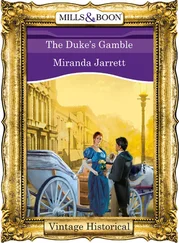Yet the stories were no more than guesses, without any proof one way or the other. All that Fan knew for certain was that her father had never come back, and that she missed him dreadfully, and that ever since that night, she’d been standing here in his place, waiting and hoping and praying for his return.
“There, mistress, there be the boat!” exclaimed Bob, pointing out through the fog. “Just like you said it would be, mistress! Just like you said!”
Fan nodded again, hiding her relief. She hadn’t been nearly as certain that Ned Markham would risk bringing the Sally in on such a night, but now she could see the bobbing yellow light on the sloop’s prow for herself. The pattern of the signal was the same they’d always used: one quick flash, two slow.
Fan leaned forward to uncover the face of her own lantern, and answered the signal in reverse with two slow flashes, one quick. Then, at last, Fan uncovered her flame and let the beam shine bright and steady, a kind of makeshift lighthouse here on the beach. The Sally’s pilot would need such a signal, for without the lantern’s light, he’d have the devil of a time guessing exactly where lay the mouth of the narrow channel called the Tunford Stream.
On the far side of the dunes the others were waiting, the trusted Company men with the horses, as well as the porters and carriers hired for the night. They all would work together with the Sally’s crew in well-practiced efficiency, bringing seven hundred pounds of China tea ashore without paying a single penny to the Customs House or the Crown.
She watched the boat drawing close, the sail just visible through the mist and fog. The tedium of waiting here on the beach was nearly done, and the next few hours would fly by, a race against the dawn. If everything went as planned, she would see the last pony, laden with tea, off over the hills before the night began to fade on the eastern horizon, and be back at Feversham with the cock’s crow, and so weary she’d barely be able to climb the back stairs to her bed.
“Who be takin’ our tea this time, mistress?” asked Bob, hopping up and down beside her with excitement, or maybe the cold. “The innkeeper in Lydd, same as last week, or that new bloke clear from London?”
“Hush yourself, Bob,” ordered Fan sharply, appalled he’d speak so freely. “Haven’t I told you before to keep your peace about our affairs here?”
“But mistress, I—”
“No chatter, Bob, not even to me,” she answered, cutting him off. “Or is that the path you’re wishing to take, Bob Forbert? Betraying us all with your idle guesses and follies?”
“Nay, mistress,” said Bob, anxiously wringing his hands in their fingerless gloves. “Nay, mistress, not by half.”
“Not by halves nor wholes nor quarters, either,” said Fan. “If you wish to share the Company’s profits, then you must abide by our rules.”
“’Course I shall, mistress!” cried Bob defensively. “I’ve my family to feed, mistress! I’m not like you with only yourself to look after!”
That hurt; that hurt, but since it was the truth, what could Fan say? “Off with you, Bob,” she said, hiding her bitterness, “and tell the others the Sally’s nigh. I’ll follow on my own, as soon as I’m sure they’ve followed the lantern.”
At once the man turned his pony and trotted away across the sand, while Pie whinnied and shifted restlessly, eager to be off as well. Swiftly Fan drew the pony in, wondering unhappily if Bob’s haste was because he was trying to prove his loyalty, or if he simply wished to be away from her criticism.
She’d heard what some of the men in the Company said behind her back, how since her father had disappeared, she’d become sharp-tongued and hard, the worst kind of shrill spinster. It didn’t matter that the Company had continued to prosper under her leadership, or that the runs were planned with greater efficiency now, or even that their profits had grown while the government’s patrols had increased along the coast with the end of the war. All they had to grumble over was the trial of taking orders from a leader in petticoats, even if she was Joss Winslow’s daughter. She didn’t want to consider how much longer they would listen to her, or what she would do if they stopped altogether.
But because Father would wish it, she’d done her best to hold the Winslow Company together, taking each day and night as it came. Whether with the Company or in her place at Feversham, she’d always taken pride in being a hard worker, in doing things the proper way.
Yet now nothing seemed right or proper in her life. Ever since last summer, she’d exactly the same feeling as she had standing on this beach tonight: empty and cold and joyless, and absolutely, completely alone.
Always prepare for the worst, and you’ll never be disappointed.
This was hardly the sort of cheerful altruism that guided the lives of most English peers. Blue blood and privilege didn’t generally go hand-in-hand with such sturdy pessimism. But although Captain Lord George Claremont had in fact been born the legitimate second son of the Duke of Strachen, he’d learned from hard experience that the worst could be lurking around the next corner, and all too often was.
No wonder, then, that as George leaned back against the musty leather squabs of the hired carriage, he concentrated on how best to attack the rest of this gray Kent morning.
No, not attack. He was in the civilian world now, and civilians did not take kindly to attacking of any sort. He must remember that, even if it broke a habit of eighteen years’ standing. Impatiently he brushed away a speck of lint from the gold-laced sleeve of his good dress coat, refusing to believe it had been quite so long that he’d worn a uniform of the same dark blue.
Sweet damnation, it had been eighteen years, hadn’t it? He hadn’t paused to do the figuring for a while, but the facts were still the same. He’d been only eleven when he’d been unceremoniously sent to sea, as wretched and homesick an excuse for a midshipman in His Majesty’s Navy as was ever created. But the Navy had given him a structure and values that his own family had never had, and against all his wishes he’d survived, even prospered. Now, at twenty-nine, he had risen to be a full captain of one of the fastest frigates in the service with a crack crew of seamen to match, and as thoroughly content with his lot as any man had a right to be in this life.
Or rather he had been content, before the politicians had signed that infernal peace and he’d been deposited on the beach like every other good sailor. At least he was better off than most of his fellow-officers, and with a grumbled oath he remembered the fantastic good fortune that had, finally, brought him here to Kent.
He glanced once more at the printed sheet that the property agent had given him in London.
FEVERSHAM HALL
A Most Handsome & Agreeable Seat of the
First Order in the County of Kent
Discreetly Situated & Elegantly Appointed
Highly Suitable for a Gentleman’s Family
Available for Immediate
Consideration & Possession
The crude drawing beneath this proclamation showed an old-fashioned, rambling house from the stately days of Queen Bess, with dark timbers criss-crossing white plaster walls and diamond-patterned windows. Roses bloomed on either side of the front door and handsome old trees shaded the curving drive, and in the distance was a picturesque glimpse of shining water and an improbable winged goddess with a trumpet hovering over the waves.
Ever skeptical, George frowned at the illustration. “Elegantly Appointed”, hah: most likely there were bats in the chimneys and mice in the walls, and the slates on a roof that old were sure to let in the rain in torrents. He’d no more real use for a grand house in the country like this one than he did for a three-legged cockerel.
Читать дальше












